Are you looking to navigate the often confusing landscape of managing irritable bowel syndrome (IBS) symptoms through vegetables and FODMAPs? If so, you’re not alone. Many individuals with IBS have found that understanding which vegetables to include and which to avoid can significantly impact their gut health and overall well-being.
In this article, we’ll explore the benefits of green vegetables rich in dietary fiber and vitamins to the potential triggers in high-FODMAP and cruciferous vegetables. We’ll help you create a roadmap for an IBS-friendly diet that’s rich in essential nutrients and gentle on your gut.
If you’re one of the millions of people living with IBS, we’ll discuss the best vegetables to include in your diet, how to prepare them to minimize IBS symptoms, and lifestyle factors that can impact your gut health.
By the end, you’ll have a deeper understanding of how embracing the right vegetables can contribute to a healthier, more vibrant life. Keep reading to unlock the secrets of managing your IBS symptoms with the power of vegetables and FODMAPs.
Vegetables and IBS Key Takeaways
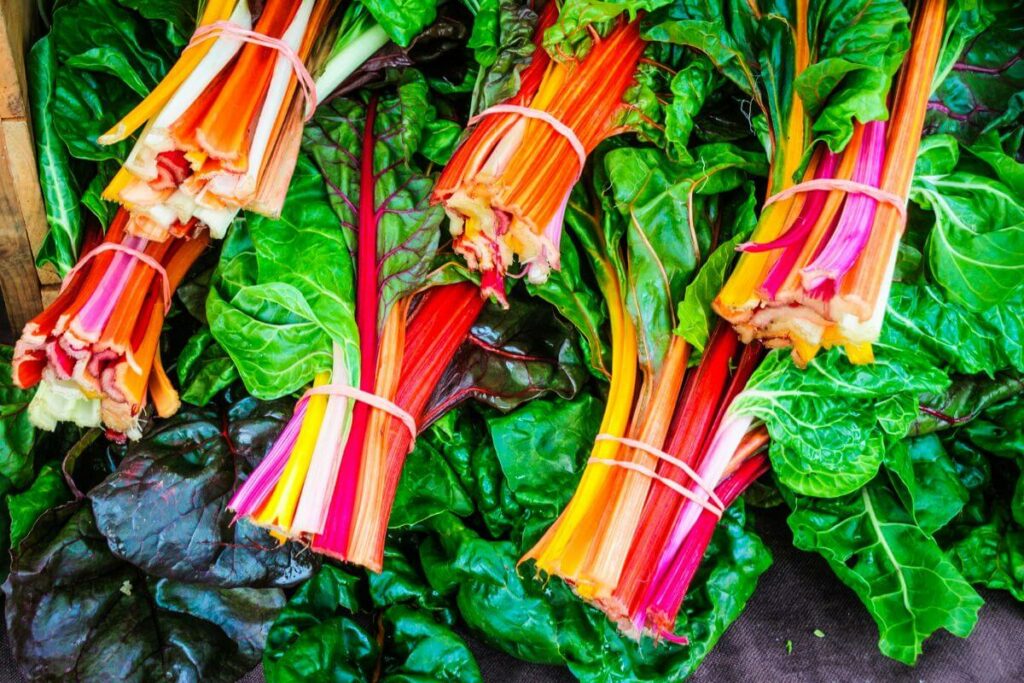
- Select Low-FODMAP Vegetables: For those with IBS, choosing low-FODMAP options like leafy greens, root vegetables, and squashes can be a game-changer in managing symptoms.
- Nutrient-Rich and IBS-Friendly: Green vegetables like spinach and chard are packed with essential nutrients that can soothe the gut and are generally well-tolerated by many with IBS.
- Gentle on the Gut: Root vegetables such as carrots and sweet potatoes, when cooked gently, can add color and flavor to your meals without triggering IBS flares.
- The Soothing Effects of Squash and Zucchini: Low-FODMAP vegetables like squash and zucchini are nutrient-rich and versatile, offering a soothing option for IBS management.
- High-FODMAP Vegetables to Watch Out For: Some high-FODMAP vegetables like garlic, onions, cauliflower, and broccoli can be problematic for IBS sufferers, and it’s important to be mindful of their intake.
- Cruciferous and Nightshade Vegetables: While nutritious, vegetables like cabbage and tomatoes can be potential IBS triggers, but can still be included in moderation with proper preparation.
- Cooking Methods for IBS-Friendly Vegetables: Steaming, roasting, and microwaving are gentle cooking methods that can reduce IBS triggers in vegetables, making them easier to digest and absorb.
The Best Low-FODMAP Vegetables to Include in Your IBS-Friendly Diet
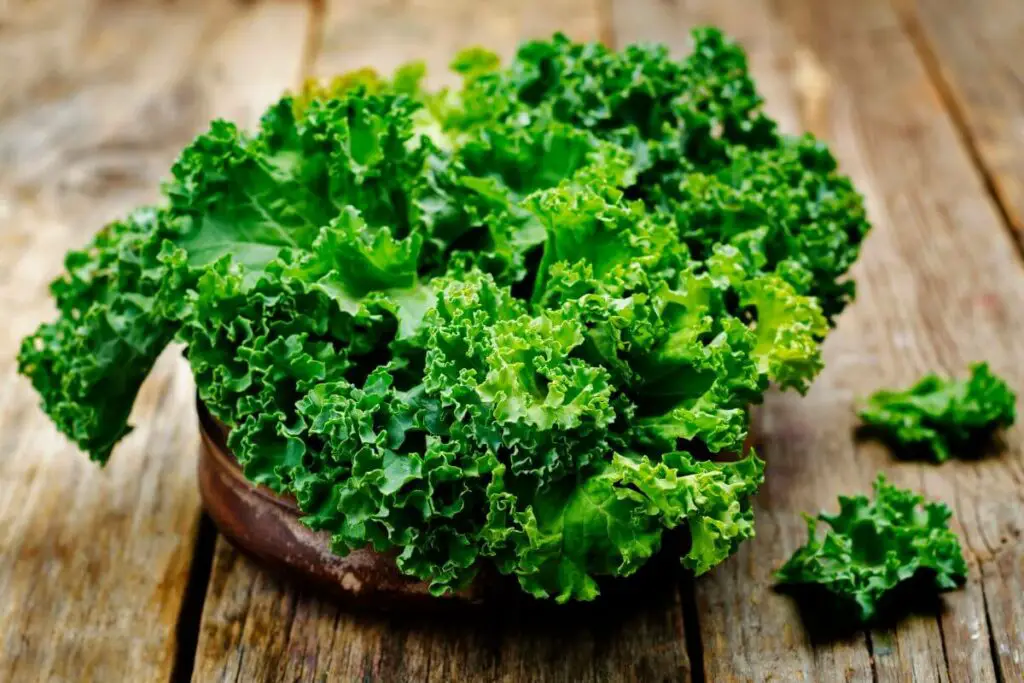
When it comes to managing IBS symptoms, the right selection of vegetables can be a game-changer. Vegetables are a cornerstone of a healthy diet, but for those with IBS, certain types can be triggers.
The key is to find a balance between nutrient-rich options and those that are low in FODMAPs (Fermentable Oligosaccharides, Disaccharides, Monosaccharides, and Polyols), which are known to exacerbate IBS symptoms.
Here are some vegetables you can confidently include in your IBS-friendly diet:
- Leafy Greens: Spinach, kale, and Swiss chard are low in FODMAPs and high in nutrients like iron and calcium.
- Root Vegetables: Carrots, parsnips, and sweet potatoes are great sources of vitamins and minerals and are generally well-tolerated by those with IBS.
- Squashes: Butternut squash and zucchini are low in FODMAPs and can be versatile additions to your meals.
- Bell Peppers: These colorful veggies are rich in antioxidants and low in FODMAPs, making them a great choice for IBS.
- Cucumbers: Refreshing and low in FODMAPs, cucumbers are a hydrating option for those with IBS.
- Green Beans: When prepared with care, green beans can be a low-FODMAP addition to your plate.
- Tomatoes: While high in acid, tomatoes are low in FODMAPs and can be enjoyed in moderation.
- Olives: Olives are a low-FODMAP source of healthy fats and can add a burst of flavor to your dishes.
- Bamboo Shoots: These are a unique addition that are low in FODMAPs and can provide a different texture to your meals.
- Alfalfa Sprouts: These tiny, nutrient-packed sprouts are low in FODMAPs and can be a great addition to salads and sandwiches.
- Chives: A low-FODMAP way to add a hint of onion flavor to your dishes.
- Ginger: Often used as a spice, ginger is low in FODMAPs and can provide digestive benefits.
Remember, it’s not just about the individual vegetables, but also about portion sizes and how they’re prepared. Cooking methods like roasting, steaming, or sautéing can make certain vegetables more IBS-friendly.
By including a variety of these low-FODMAP vegetables in your diet, you can enjoy a colorful and nutrient-rich plate without triggering uncomfortable IBS symptoms. And don’t forget, it’s always best to work with a healthcare professional or a registered dietitian to tailor your diet to your specific needs and tolerances.
1. The Benefits of Green Vegetables for IBS

When it comes to battling IBS symptoms, green vegetables like spinach and chard are your allies. These leafy greens are not just a pretty addition to your plate; they’re packed with essential nutrients that can help soothe your gut. Here’s how they do it:
- Vitamin K: Essential for Gut Health
- Spinach and chard are rich in vitamin K, a nutrient that plays a crucial role in maintaining gut health. It supports the production of beneficial gut bacteria, which can help alleviate IBS symptoms.
- β-Carotene: An Antioxidant Powerhouse
- These green veggies are also abundant in β-carotene, a potent antioxidant. β-Carotene not only supports your immune system but also has anti-inflammatory properties, which can be particularly helpful for IBS flare-ups.
- Dietary Fiber: The Digestive Hero
- You’ve probably heard the buzz about dietary fiber, and for good reason. Spinach and chard are excellent sources of this nutrient. Fiber adds bulk to your stool, promoting regular bowel movements and reducing the risk of constipation, a common IBS woe.
By including these green vegetables in your IBS-friendly diet, you’re not only adding variety and flavor to your meals but also giving your gut the nutrients it craves. Remember, variety is key, so mix it up with other low-FODMAP veggies like zucchini and cucumber to create a balanced, gut-friendly diet.
Quick Tips for Incorporating Green Veggies:
- Add a handful of spinach to your morning smoothie for an extra nutrient boost.
- Sauté chard with garlic and a squeeze of lemon for a delicious and gut-friendly side dish.
- Create a colorful salad with a mix of low-FODMAP greens, topped with a light vinaigrette.
So, the next time you’re at the grocery store, don’t forget to stock up on these green superheroes. Your gut will thank you for it!
2. Root Vegetables That Are Gentle on the Gut
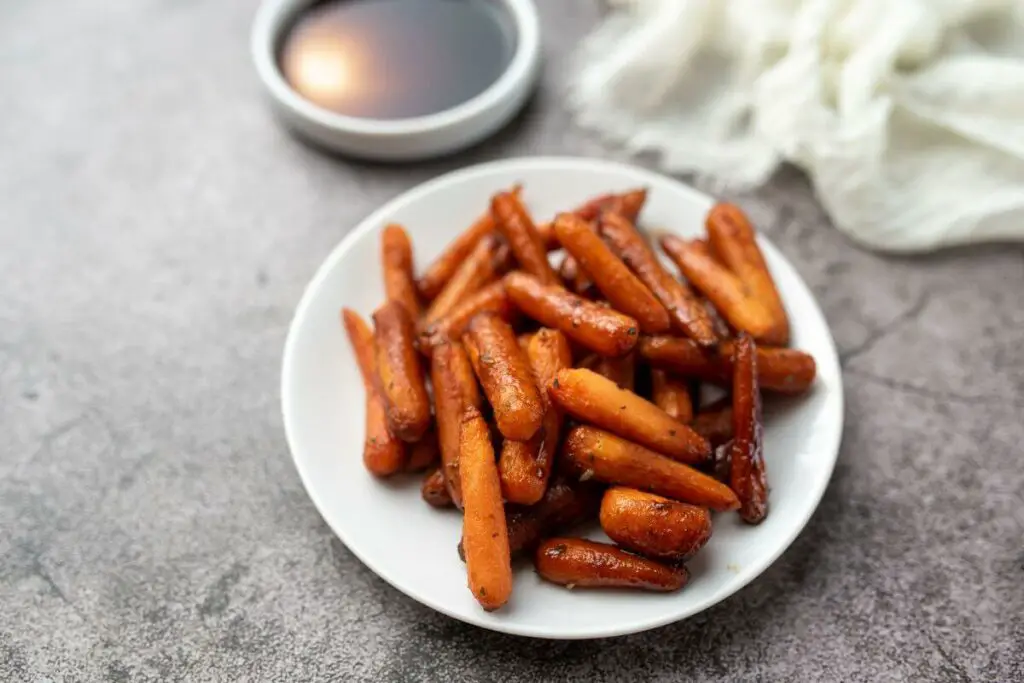
Root vegetables, the unsung heroes of the produce aisle, can be a game-changer for your IBS. Carrots and sweet potatoes, in particular, are often well-tolerated and can add a pop of color and flavor to your meals.
Here’s the lowdown:
- Carrots: These crunchy delights are rich in fiber and beta-carotene, which can be beneficial for your gut health. You can enjoy them raw as a snack or lightly cooked in a stir-fry.
- Sweet Potatoes: These naturally sweet spuds are not only delicious but also packed with fiber and vitamins. Roasting or steaming them can help to minimize potential IBS triggers while enhancing their natural flavors.
Cooking these root vegetables in ways that are gentle on the gut, like roasting, can make them even more IBS-friendly. The process of roasting, for example, breaks down some of the fibers that might be harder to digest, making the vegetables softer and more easily processed by your gut.
Here are a couple of quick tips for preparing these root veggies to minimize potential IBS triggers:
- Roasting: This cooking method can help break down some of the fibers, making the vegetables easier to digest.
- Steaming: A gentle and quick way to cook sweet potatoes, preserving their nutrients and minimizing potential gut irritation.
By incorporating these root vegetables into your diet and preparing them in gut-friendly ways, you can add variety and nutrition to your meals without worrying about IBS flares. Just remember, everyone’s gut is different, so it’s best to start with small portions and gradually increase as your body adjusts.
3. The Soothing Effects of Squash and Zucchini
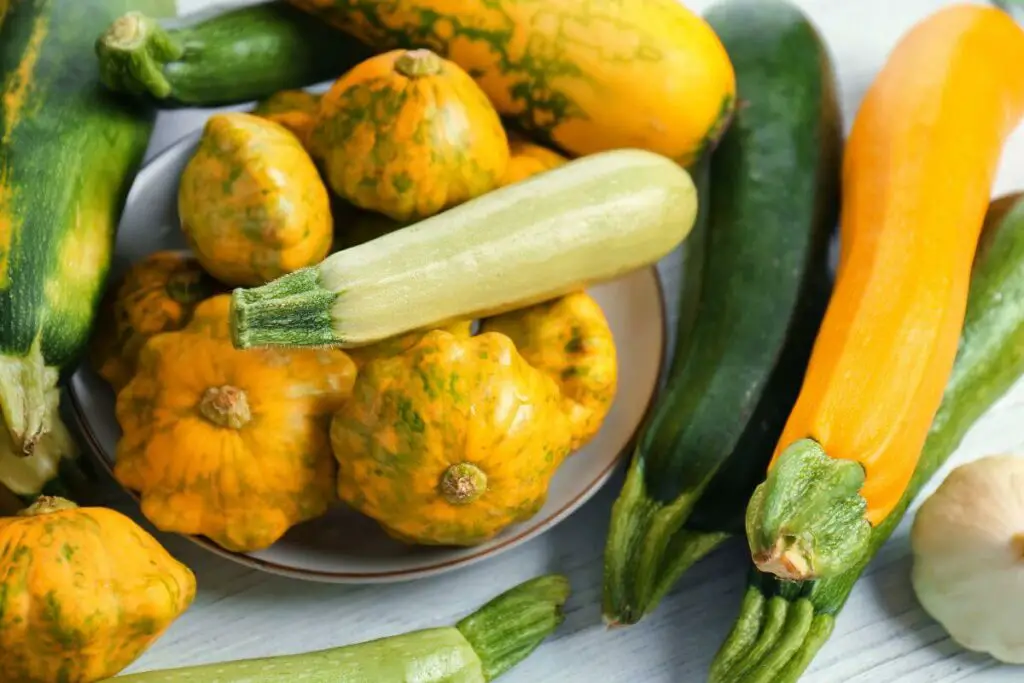
When it comes to managing your IBS symptoms, the right vegetables can be your best friends. Squash and zucchini, in particular, are low in FODMAPs, making them gentle on your gut while still providing essential nutrients.
Here’s why they’re a great choice:
- Low-FODMAP: Squash and zucchini are both low-FODMAP vegetables, which means they are less likely to cause digestive discomfort.
- Nutrient-Rich: These veggies are packed with vitamins, minerals, and antioxidants that support overall health.
Now, let’s talk about how you can incorporate them into your meals:
- Roasted Delights: Toss squash and zucchini with a drizzle of olive oil, salt, and pepper, then roast them in the oven for a flavorful side dish.
- Spiralized Noodles: Use a spiralizer to turn zucchini into “zoodles” for a low-carb, low-FODMAP alternative to traditional pasta.
- Creamy Soups: Puree cooked squash into a creamy soup, or add zucchini to a broth-based soup for a comforting meal.
By including squash and zucchini in your diet, you’re not only managing your IBS symptoms but also diversifying your nutrient intake. So, the next time you’re at the grocery store, don’t overlook these humble yet powerful vegetables.
4. Leveraging Leafy Vegetables for IBS Management
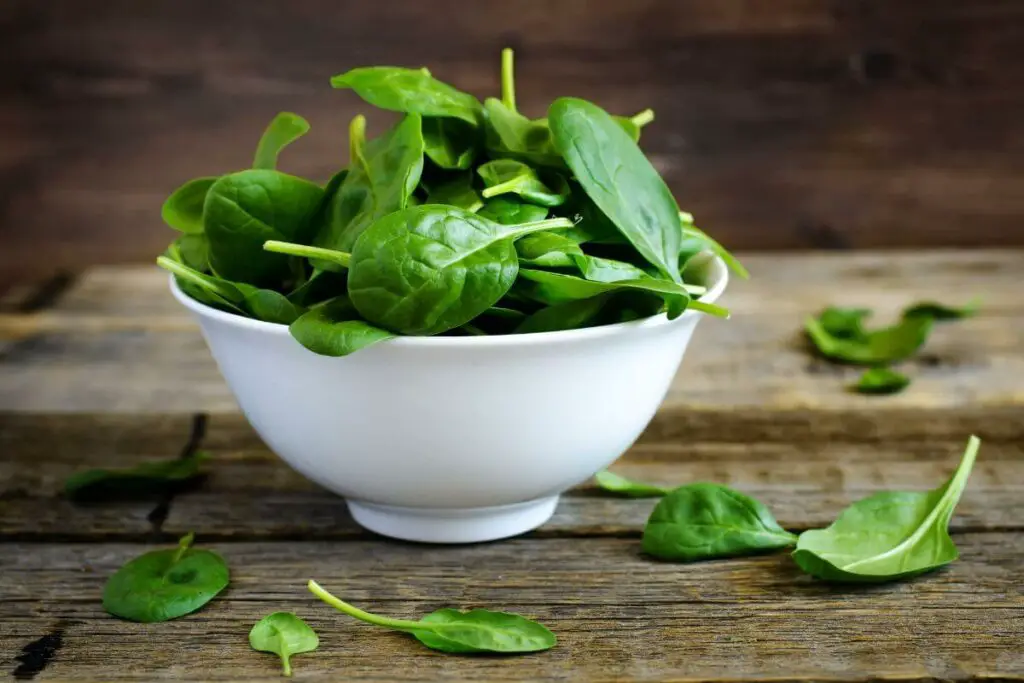
When it comes to managing IBS symptoms, leafy vegetables can be your green allies. In a low-FODMAP diet, certain leafy greens like kale and lettuce can be a safe and nutritious addition to your plate. These vegetables are not only rich in essential nutrients but are also generally well-tolerated by many with IBS.
However, the key here is portion control. While leafy greens are generally low in fermentable carbohydrates (FODMAPs), consuming them in large amounts can still trigger symptoms in some individuals.
Here’s a quick guide to incorporating leafy vegetables into your low-FODMAP diet:
- Safe Leafy Greens: Opt for vegetables like kale, spinach, and Swiss chard, which are low in FODMAPs and high in nutrients.
- Portion Size: Stick to smaller portions, especially if you’re in the initial phases of your low-FODMAP journey. A handful of leafy greens in a salad or as a side dish is a good starting point.
- Preparation Methods: Experiment with different preparation methods like sautéing or lightly steaming your leafy greens to make them even more gut-friendly.
- Monitor Your Symptoms: As with any food, pay attention to how your body responds. If you notice any discomfort or abdominal pain, consider adjusting the portion size or the frequency of consumption.
Including leafy vegetables in your diet can not only support your gut health but also add variety and color to your meals. Just remember, the key to success here is moderation and finding what works best for your unique digestive system.
Vegetables to Avoid or Limit with IBS
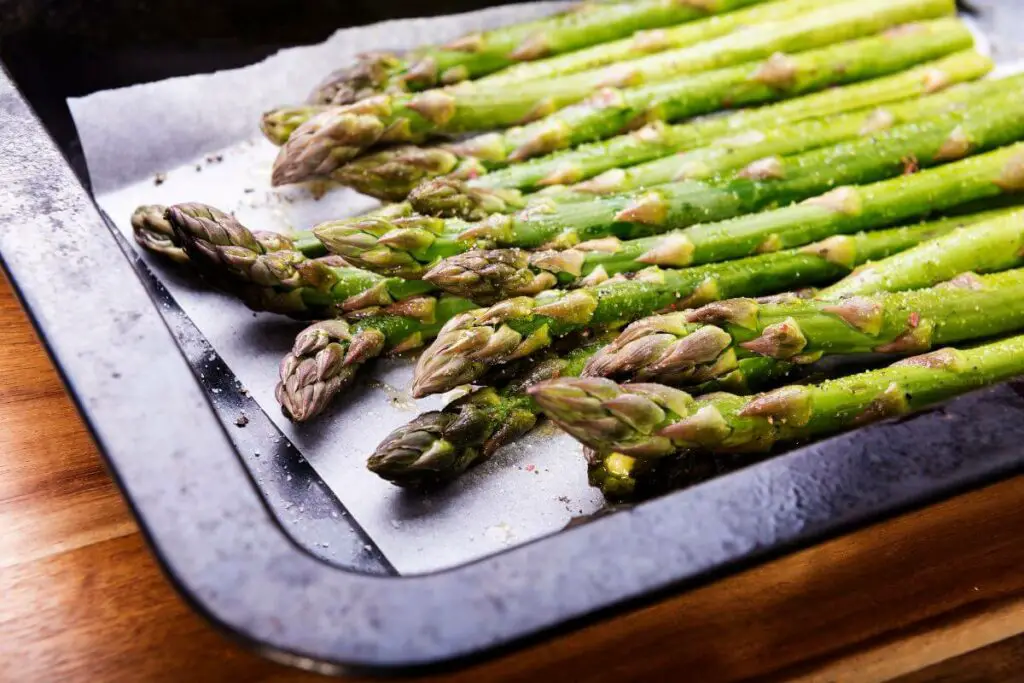
If you’re dealing with IBS, you know that certain foods can trigger uncomfortable symptoms. While vegetables are generally a healthy choice, some can be problematic for those with IBS due to their FODMAP content.
FODMAPs are types of carbohydrates that can ferment in the gut, leading to bloating, gas, and other IBS symptoms. Here’s a rundown of the vegetables you might want to avoid or limit and some alternatives to still get your veggie fix without the discomfort.
1. High-FODMAP Vegetables to Watch Out For
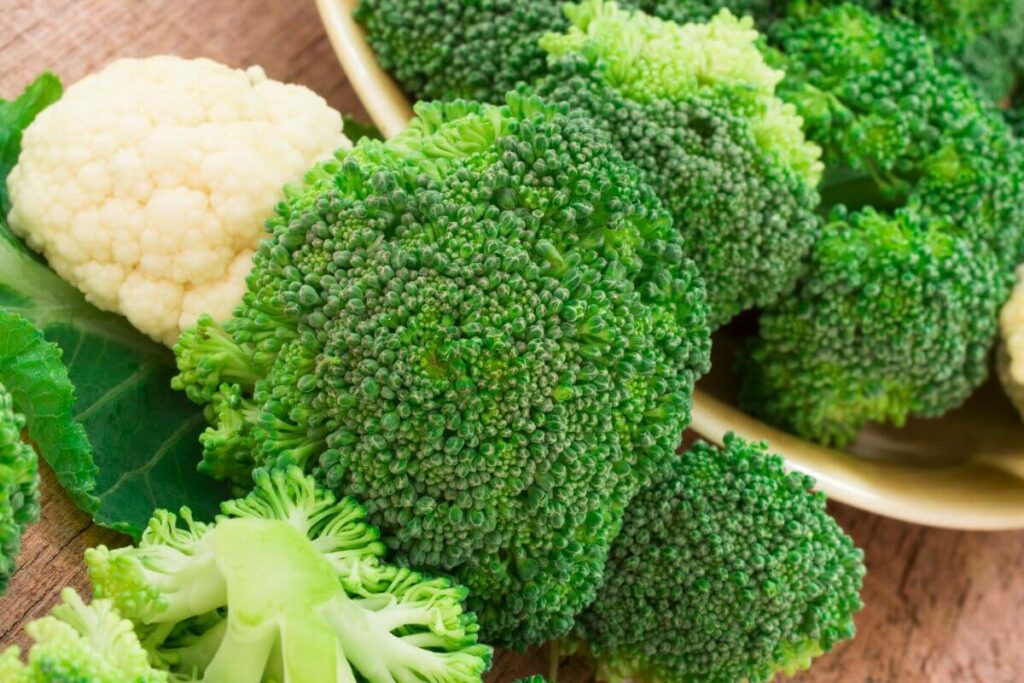
When it comes to managing your IBS symptoms, it’s important to know that not all vegetables are created equal in terms of their impact on your gut. Some, like garlic and onions, are high in FODMAPs (fermentable oligosaccharides, disaccharides, monosaccharides, and polyols), which can trigger bloating and gas in individuals with IBS.
Why are these seemingly harmless veggies sometimes the culprits behind your discomfort? Well, FODMAPs are short-chain carbohydrates that are not easily absorbed in the small intestine, leading them to be fermented by gut bacteria in the large intestine. This fermentation process can produce gas and lead to bloating and other IBS symptoms.
If you’ve ever experienced a particularly uncomfortable bout of bloating or gas after a meal heavy in garlic or onions, you’re not alone. These vegetables are known to be high in fructans, a type of FODMAP that can be problematic for some people with IBS.
Here’s a quick rundown of high-FODMAP vegetables to keep an eye on:
- Onions: Whether raw, cooked, or powdered, onions are a common source of fructans.
- Garlic: Another fructan-rich vegetable, garlic is often used in various cuisines and can be a surprising source of FODMAPs.
- Cauliflower and broccoli: While nutrient-rich, they can be hard to digest.
- Asparagus and artichokes: Their high FODMAP content can lead to bloating and gas.
- Sugar snap peas and snow peas: These can be difficult for some to tolerate.
- Beetroot and butternut squash: Delicious, but high in FODMAPs.
It’s worth noting that the FODMAP content in vegetables can vary depending on factors such as portion size and preparation methods. While these high-FODMAP vegetables may not need to be completely eliminated from your diet, being mindful of your intake and opting for low-FODMAP alternatives can help you better manage your IBS symptoms.
By paying attention to the FODMAP content of the vegetables you consume, you can make informed choices that support your gut health and overall well-being. So, next time you’re planning a meal, consider experimenting with low-FODMAP vegetables to see how they work for you.
2. Cruciferous and Nightshade Vegetables: Potential IBS Triggers
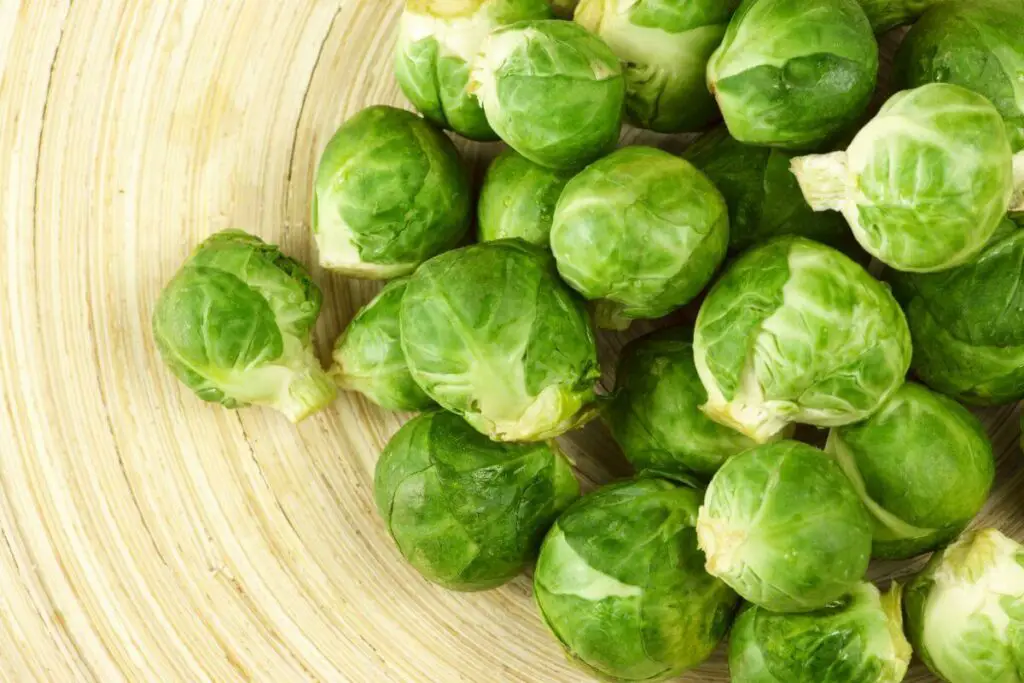
When it comes to managing IBS, not all veggies are created equal. Some of your favorite greens like cabbage and broccoli fall into the cruciferous vegetable category, while nightshade vegetables include familiar staples like tomatoes and potatoes. These veggies, while nutritious, can sometimes trigger IBS symptoms due to their high FODMAP content.
- Cruciferous Vegetables: Cabbage, broccoli, Brussels sprouts
- If you love these veggies, try consuming them in smaller portions and cooking them well to break down the FODMAPs.
- Nightshade Vegetables: Tomato, potato, eggplant
- Opt for ripe tomatoes over unripe ones, and consider peeling and deseeding them to reduce FODMAPs. For potatoes, try sweet potatoes as they’re lower in FODMAPs.
Remember, just because these vegetables can be potential triggers doesn’t mean you have to give them up entirely. It’s all about finding the right balance and preparation methods that work for your gut.
Incorporating Vegetables into Your IBS Diet
- Aim for a variety of low-FODMAP foods and vegetables like carrots, zucchini, and spinach.
- Experiment with vegetable preparation methods, such as steaming or roasting, to make them more gut-friendly.
- Keep a food diary to track how your body responds to different vegetables, allowing you to tailor your diet more effectively.
By being mindful of your vegetable choices and portion sizes, you can still enjoy a colorful and nutritious diet while managing your IBS symptoms. Always consult with a healthcare professional or a registered dietitian to create a personalized diet plan that suits your individual needs.
How to Prepare Vegetables to Minimize IBS Symptoms
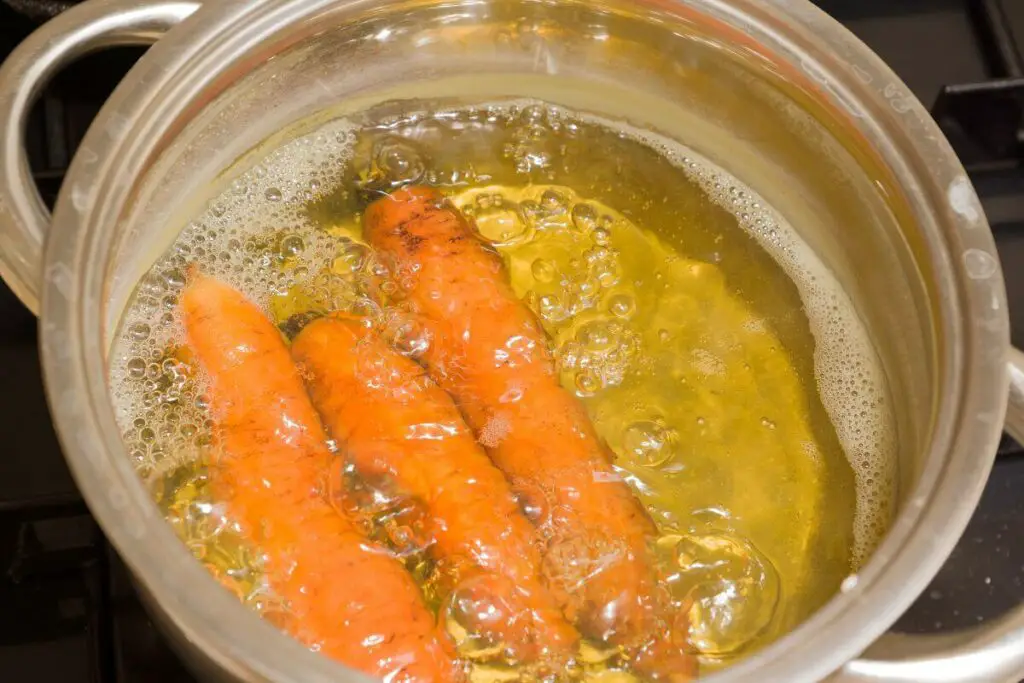
Cooking your veggies can be a game-changer for your gut. Different cooking methods can reduce IBS symptoms and triggers, making it easier for your digestive system to process and absorb the nutrients.
By paying attention to how you prepare your vegetables, you can still enjoy a variety of nutrient-packed options while managing your IBS symptoms. Remember, it’s not just about what you eat, but how you prepare it that can make a difference in your gut health.
Cooked vs. Raw Vegetables: Which is Better for IBS?
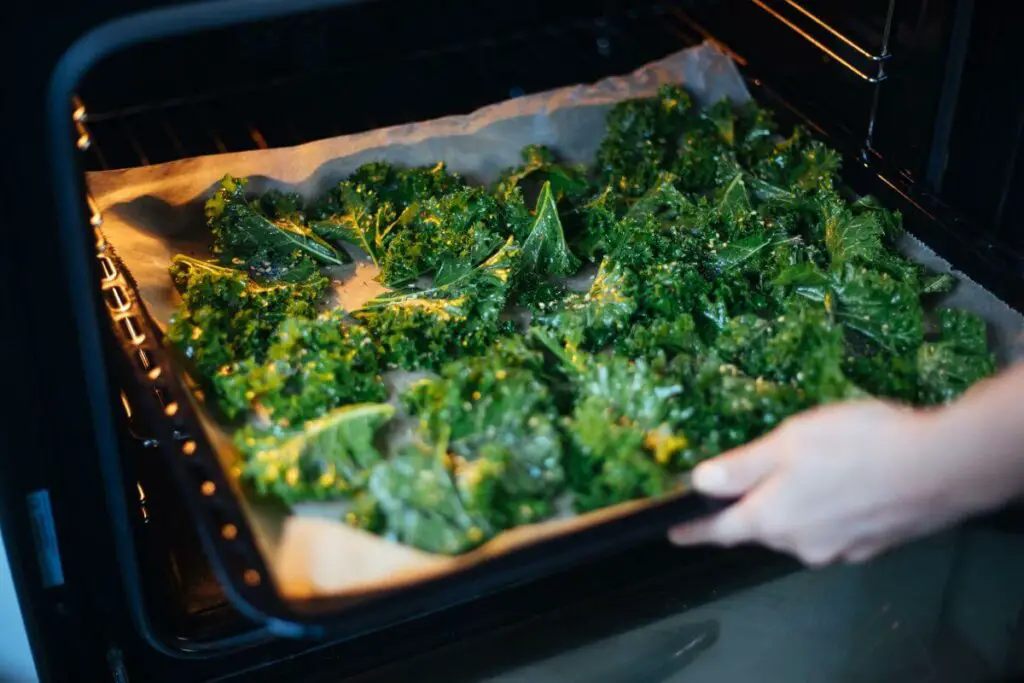
When it comes to IBS and vegetable consumption, the raw vs. cooked debate can be a game-changer. Raw vegetables, while nutrient-dense, can be harder to digest due to their high fiber content.
This can trigger IBS symptoms like bloating and gas in some individuals. On the other hand, cooked vegetables are generally easier on the gut as cooking breaks down some of the fibrous components.
Here’s a quick comparison of raw vs. cooked vegetables for IBS management:
- Raw Vegetables: Great for nutrient retention but can be harder to digest.
- Cooked Vegetables: Easier on the gut, especially when steamed or roasted.
You don’t have to give up raw veggies entirely, but consider incorporating them in smaller quantities or choosing those that are naturally easier to digest, like cucumber or spinach.
Cooking methods like steaming and roasting are your allies here, as they soften the vegetables, making them more gut-friendly while still retaining a good portion of their nutrients.
Actionable Tips for Cooking Vegetables with IBS in Mind:
- Steaming: A gentle cooking method that retains nutrients and makes vegetables more easily digestible.
- Roasting: Adds flavor and texture while breaking down some of the fibrous components.
- Avoid Overcooking: Overcooking can lead to nutrient loss, so aim for a balance.
Remember, the goal is to find a middle ground where you can enjoy a variety of vegetables without triggering your IBS symptoms. It’s all about experimenting and finding what works best for your body. So, next time you’re in the kitchen, consider giving your veggies a light steam or roast, and your gut might just thank you for it.
Integrating Vegetables into Your IBS Diet: Practical Tips and Recipes
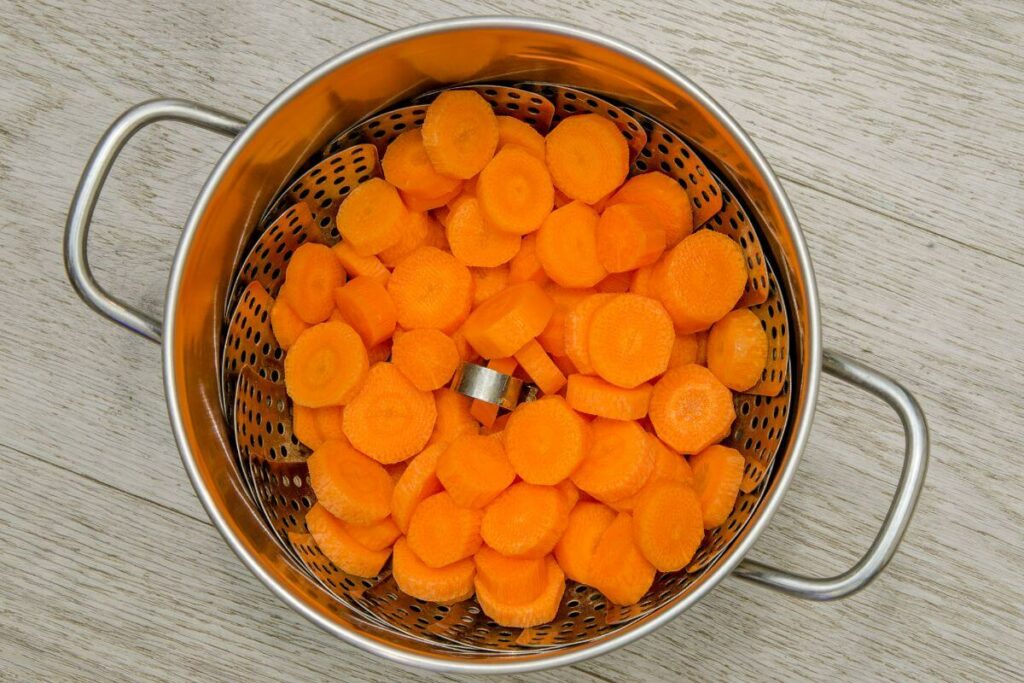
So, you know that vegetables are a key part of a healthy diet, but how do you incorporate them into your IBS-friendly eating plan without setting off a digestive minefield? Let’s break it down.
Practical Tips for Adding Vegetables:
- Start Small: Begin with low-FODMAP vegetables like carrots, cucumbers, and spinach in small portions.
- Cook Them: Cooking vegetables can make them easier to digest. Try steaming or roasting your veggies.
- Monitor Your Tolerance: Keep a food diary to track how your body responds to different vegetables.
- Gradually Increase Variety: Once you’ve found a few vegetables that sit well with your gut, slowly introduce new ones.
Simple IBS-Friendly Vegetable Recipes:
- Carrot and Ginger Smoothie: Blend 1 cup of chopped carrots, 1 teaspoon of grated ginger, 1 cup of lactose-free yogurt, and a handful of ice cubes for a refreshing, gut-friendly drink.
- Quinoa and Grilled Vegetable Salad: Toss grilled zucchini, bell peppers, and cherry tomatoes with cooked quinoa. Drizzle with a low-FODMAP vinaigrette for a delicious and nutritious salad.
Remember, self-care is key in managing IBS. By being mindful of your vegetable choices and how you prepare them, you can enjoy the nutritional benefits without sacrificing your digestive comfort. And hey, who said an IBS diet can’t be delicious?
So go ahead, try out these simple recipes, and don’t be afraid to get creative with your vegetable choices. Your gut and your taste buds will thank you.
The Impact of Lifestyle Factors on IBS and Vegetable Tolerance

Lifestyle factors can significantly influence how your body tolerates vegetables, especially if you have IBS. From stress levels to exercise habits, your daily choices can either soothe or exacerbate your gut.
Understanding this interplay can help you navigate your IBS symptoms more effectively. So, let’s talk about the impact of lifestyle factors on your vegetable tolerance and IBS management.
Stress and IBS: The Gut-Brain Connection
- Chronic stress can trigger or worsen IBS symptoms.
- Practice stress-reducing techniques like meditation, deep breathing, or yoga.
- Prioritize self-care and set boundaries to manage stress levels.
Exercise and IBS: Finding the Right Balance
- Regular, moderate exercise can aid digestion and reduce IBS symptoms.
- High-intensity workouts or excessive exercise can sometimes trigger IBS symptoms.
- Experiment with different types of exercise to find what works best for your body and digestive symptoms.
Sleep and IBS: The Restorative Power
- Inadequate sleep can lead to increased IBS symptoms.
- Aim for 7-9 hours of quality sleep per night.
- Establish a relaxing bedtime routine to improve sleep quality.
Diet and IBS: The FODMAP Approach
- Low-FODMAP vegetables are often better tolerated by those with IBS.
- Experiment with different vegetables to identify your personal triggers.
- Consult with a dietitian to create a balanced, low-FODMAP meal plan.
Social Support and IBS: Building a Strong Network
- Social support can help reduce stress and improve overall well-being.
- Connect with friends and family who understand and support your IBS journey.
- Consider joining IBS support groups or seeking professional counseling if needed.
Work-Life Balance and IBS: Prioritizing Health
- Overworking and constant multitasking can increase stress and worsen IBS symptoms.
- Set boundaries at work and create a healthy work-life balance.
- Prioritize regular breaks and time for relaxation.
Hydration and IBS: The Importance of Water
- Dehydration can lead to constipation, a common IBS symptom.
- Drink plenty of water throughout the day.
- Limit or avoid caffeine and alcohol, as they can contribute to dehydration.
By understanding how lifestyle factors can impact your IBS and vegetable tolerance, you can make informed choices that support your overall health and well-being. Remember, it’s not just about what you eat, but also how you live that can make a difference in managing your IBS symptoms.
The Role of Stress and the Gut-Brain Axis in IBS

Stress isn’t just a mental disorder; it’s a player in your gut health, too. The gut-brain axis, a complex communication network between your gut and brain, can influence IBS symptoms. When you’re stressed, your gut can become more sensitive, leading to heightened IBS symptoms.
Here’s how stress management can help you better tolerate vegetables and manage IBS:
- Mindfulness and Relaxation Techniques:
- Engage in activities like yoga, meditation, or deep breathing to reduce stress levels. These practices can help calm the gut and improve vegetable tolerance.
- Regular Exercise:
- Physical activity is a great stress-buster. It also promotes healthy gut function and can make your gut less reactive to vegetable-based FODMAPs.
- Adequate Sleep:
- Poor sleep can exacerbate both stress and IBS symptoms. Prioritize good sleep hygiene to keep stress in check and your gut happy.
- Seek Support:
- Don’t underestimate the power of a good chat. Whether it’s with a friend, a therapist, or a support group, sharing your stress can lighten the load on your gut.
- Balanced Diet:
- While certain vegetables may trigger IBS symptoms, others can be soothing. Work with a registered dietitian to find a balance that suits your gut and your taste buds.
Remember, self-care is not selfish; it’s essential. By managing stress effectively, you can create a more harmonious environment within your gut, making it more resilient to the challenges that vegetables or FODMAPs may present. So, take a deep breath, lace up those walking shoes, and give your gut a little mental vacation.
Gluten, Caffeine, and Prebiotics: A Trio Worth Noting

While we’re on the topic of managing IBS with vegetables and FODMAPs, let’s not overlook the role of gluten, caffeine, and prebiotics in your dietary mix. Here’s why they matter:
Gluten-Free Diet: If you’ve been diagnosed with IBS, you might have considered or been advised to try a gluten-free diet. Gluten, a protein found in wheat, barley, and rye, can trigger gastrointestinal symptoms in some individuals. As you navigate your vegetable choices, think beyond the standard wheat-based grains and opt for gluten-free alternatives like quinoa, rice, and corn.
Caffeine: Your morning cup of joe might be a non-negotiable, but it’s worth noting that caffeine can stimulate the gut, potentially worsening IBS symptoms in some people. If you find that caffeine exacerbates your symptoms, consider cutting back or choosing low-caffeine or decaffeinated options. As for your veggie pairings, be mindful of high-caffeine beverages like some teas and sodas, and consider herbal teas or caffeine-free alternatives.
Prebiotics: Now, let’s talk about the often-overlooked prebiotics, compared to their probiotics partner. These are types of fiber that feed the beneficial bacteria in your gut, promoting a healthy gut microbiome. While prebiotics are generally beneficial, some IBS sufferers may find that certain prebiotic-rich foods, like legumes (chickpeas, soybeans) and certain vegetables, can trigger symptoms. The key is to find a balance – you don’t have to eliminate these foods entirely, but you might want to moderate your intake and experiment with cooking methods to make them more gut-friendly.
Remember, dietary management of IBS is highly individual. What works for one person may not work for another. As you make your veggie-centric meal plans, consider consulting a dietitian or healthcare provider to tailor your diet to your unique needs.
Final Thoughts: Embracing Vegetables for a Healthier IBS Diet

In your quest to manage IBS symptoms, the world of vegetables can be your best ally. By understanding FODMAPs and the unique digestive needs of your body, you can create a balanced and nutritious diet that supports your gut health.
The journey to a healthier IBS diet is all about finding the right balance of vegetables that work for you. It’s not about restriction, but rather about discovering the nutrient-rich options that your body can happily digest.
By incorporating low-FODMAP vegetables, you can increase your dietary fiber and nutrient intake while minimizing the risk of triggering IBS symptoms. And remember, you don’t have to navigate this path alone. Consulting with a registered dietitian or nutrition expert can provide you with personalized guidance as you embark on this veggie-filled adventure.
So, as you step into your kitchen and your local produce aisle, let your curiosity guide you. Embrace vegetables let your IBS-friendly diet be a celebration of both health and deliciousness.
For more on other types of foods and their effects on IBS, check out these articles:
